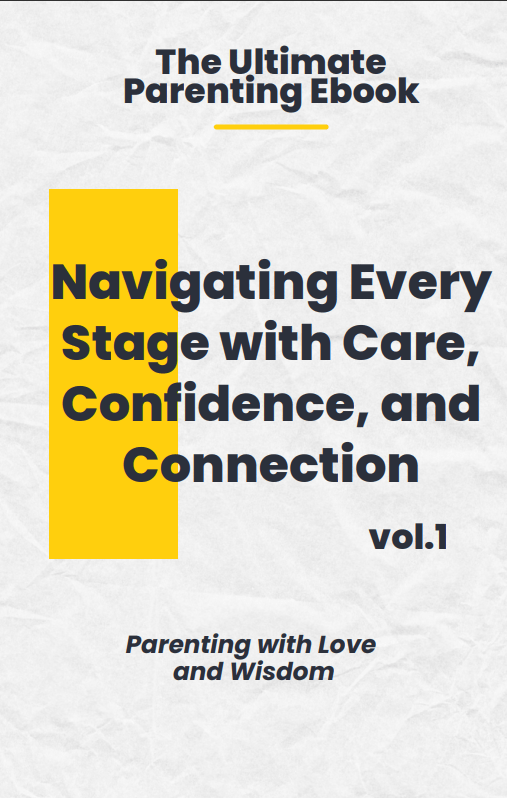
Are you standing at the crossroads, wondering if now is the right time to homeschool your child? It’s a question many parents wrestle with: “What age should you start homeschooling?” Whether you’re inspired by its benefits or concerned about your child’s readiness, the answer isn’t one-size-fits-all. In this blog, we’ll tackle this question from every angle, helping you make an informed, confident decision.
In This Blog
ToggleWhy Timing Matters for Homeschooling Success
Starting homeschooling at the right age can set the stage for academic, social, and emotional growth. Whether you’re contemplating preschool homeschooling or transitioning a middle-schooler, understanding the implications of timing is crucial.
Homeschooling allows parents to cater to their child’s unique needs, but when to start depends on a combination of developmental readiness, parental goals, and state laws. Below, we’ll dive into each aspect to help you determine the perfect starting point.
The Short Answer to “What Age Should You Start Homeschooling?”
The beauty of homeschooling is its flexibility—it can begin at almost any age. Some families start during preschool, emphasizing play-based learning, while others wait until middle school, focusing on academics or social challenges. The answer boils down to your child’s unique needs and your family’s goals.
Key takeaway: Don’t feel pressured to conform. Whether you start at age 4 or age 12, homeschooling works best when it fits your child’s developmental stage.
Factors to Consider When Choosing the Right Age
1. Child’s Developmental Readiness
Children develop at their own pace. A 4-year-old might love structured activities, while an 8-year-old might thrive on self-directed learning. Here’s what to consider:
- Preschoolers: Are they curious about numbers, letters, and colors? If yes, homeschooling can nurture this early interest. However, avoid pushing too hard; play should still dominate their day.
- Elementary Age (6-10): This age is ideal for introducing structured academics. Children are ready to learn reading, math, and science in a more focused way.
- Middle and High Schoolers: At this stage, homeschooling can address academic gaps or provide personalized learning paths for college prep.
2. Parental Readiness
Ask yourself:
- Are you prepared to dedicate time to teaching or finding resources?
- Can you create a learning environment that suits your child’s age?
3. State Homeschooling Laws
Each state in the U.S. has its own set of regulations and guidelines governing homeschooling. Some states mandate that children start formal education by age 6, which applies to homeschoolers too. Check your state’s specific laws to ensure compliance.
Pros and Cons of Starting Homeschooling at Different Ages
Starting Early (Ages 3-5)
Pros
- Builds foundational skills (e.g., motor skills, early literacy).
- Allows you to instill a love of learning from the start.
- The curriculum can be tailored to align with your child’s individual learning speed and style.
Cons
- Risk of burnout (for both parent and child).
- Socialization requires more effort—playdates and co-ops are vital.
Starting at Elementary Age (6-10)
Pros
- Children are developmentally ready for structured learning.
- Ideal age to address specific academic needs.
Cons
- Requires a balance between academics and play.
- Parents may need more resources to teach multiple subjects.
Starting Later (11+ Years)
Pros
- Older children are more self-directed and motivated.
- Focus can shift to advanced topics or skills like coding, arts, or college prep.
Cons
- Transitioning from traditional school can be challenging initially.
- Gaps in foundational skills may need addressing.
Addressing Parental Concerns: How to Start Homeschooling at Any Age
“Is Preschool Too Early for Homeschooling?”
- No, as long as your focus is on play-based learning rather than rigid academics. Use tools like puzzles, songs, and storytelling to create a joyful environment.
“Can You Start Homeschooling a Middle-Schooler?”
- Absolutely! Many parents begin homeschooling at this stage due to bullying, academic challenges, or a desire for specialized learning. Start with a bridge period to help your child adjust.
Tips for Transitioning to Homeschooling Smoothly
- Start with a Trial Period: Test homeschooling for a month to see how your child adapts.
- Use Age-Appropriate Resources:
- Preschoolers: Focus on interactive activities (e.g., Montessori-inspired toys).
- Elementary Age: Try hands-on experiments and engaging reading programs.
- Older Kids: Incorporate online courses and project-based learning.
- Join Homeschool Groups: Connect with local or online communities for guidance, resources, and social activities.
FAQs: What You Need to Know
Q: Can I start homeschooling mid-year?
Yes! Homeschooling is flexible and can begin anytime during the school year. Just ensure a smooth transition by setting clear goals.
Q: Is it ever too late to start homeschooling?
No. Whether your child is 5 or 15, homeschooling can cater to their needs and help them thrive.

Conclusion
There’s no universal “perfect” age to start homeschooling. The best time depends on your child’s readiness, your goals, and the challenges you’re looking to address. What matters most is creating a supportive, enriching environment for your child to learn and grow.
So, what age should you start homeschooling? Whenever your family feels ready. Take the first step confidently—you’ve got this!
You may also be interested in : Homeschooling Vs. Unschooling? What Science Says About Your Child’s Brain Development
FAQs
1. What is the best age to start homeschooling?
The best age varies by child. Some parents begin at preschool to nurture early learning, while others wait for elementary or middle school to address specific needs.
2. Is preschool too early to start homeschooling?
No, as long as the focus is on playful, exploratory learning rather than structured academics. Early homeschooling builds a love for learning.
3. Can you start homeschooling a teenager?
Absolutely. Many parents start homeschooling teens to focus on individualized learning, advanced subjects, or personal challenges like bullying.
4. What are the pros of starting homeschooling early?
Early homeschooling fosters creativity and a love for learning. It allows you to build a strong educational foundation while adapting to your child’s pace.
5. Are there cons to starting homeschooling later?
Transitioning a child from traditional school can be challenging initially, and you might need to address gaps in foundational skills or adjust socialization strategies.
6. Do I need qualifications to start homeschooling?
In most U.S. states, no formal teaching qualification is required. However, understanding your state laws and seeking support groups can help immensely.
7. What are signs my child is ready for homeschooling?
Signs include curiosity about learning, difficulty in traditional school settings, or showing advanced skills needing personalized attention.
8. Is homeschooling flexible for all ages?
Yes, homeschooling adapts to the child’s developmental stage, allowing for customized teaching methods at any age.
9. Can I start homeschooling mid-year?
Yes, homeschooling can start anytime. Transition smoothly by setting clear goals and creating a flexible plan.
10. How do I transition a middle schooler to homeschooling?
Start gradually with a transitional curriculum and involve your child in planning their learning goals. This eases resistance and boosts motivation.
11. Are there legal requirements for starting homeschooling?
Yes, U.S. state laws vary. Research your state’s guidelines for compulsory education age and requirements for homeschooling.
12. What should I teach a preschooler when homeschooling?
Focus on play-based activities like puzzles, storytelling, and hands-on learning. Avoid rigid academics at this stage.
13. Is homeschooling a toddler beneficial?
Yes, but it should be informal, emphasizing fun activities like singing, counting, and sensory play to build early interest in learning.
14. How does homeschooling change with age?
Young children benefit from playful learning, while older kids thrive on self-directed or project-based approaches with academic focus.
15. What if I want to homeschool only temporarily?
Temporary homeschooling is possible. It’s ideal for addressing short-term needs like health, relocation, or academic gaps.




